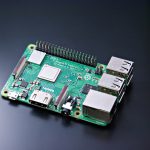
Introduction
Traditionally, electricians relied on a collection of specialised tools for each test, making the process cumbersome and time-consuming. Furthermore, electrical testing often requires a variety of testing procedures, each with its own dedicated equipment. But what if there was a single tool that could handle all these tasks? Enter the multifunction testers that streamline workflow by simplifying electrical testing, exploring their capabilities, significance, types, selection parameters, best marketplaces and brands, and versatile applications.
What is a Multifunction Tester? Purpose & Features
Multifunction testers (MFTs), also called multipurpose testers, are handheld test equipment that combine the functionalities of several individual electrical test tools into one compact unit. In addition, these electrical testers are a valuable asset for any professional involved in electrical work, providing a true all-in-one solution for electrical testing. It combines the functions of several traditional testing devices, including resistance testers, continuity testers, loop impedance testers, and more. Moreover, this integration simplifies the testing process, reducing the need for multiple tools and enhancing efficiency. MFTs are typically equipped with a digital display for easy output readings and an intuitive user interface with buttons or touchscreens for easy navigation and operation. Additionally, advanced models also incorporate data logging and connectivity options for data storage and transfer capabilities.
Understanding the Significance of Multifunction Testers
Multifunction testers are a cornerstone of electrical safety and efficiency for professionals, including electricians, maintenance technicians, facility managers, and engineers. Their significance lies in their capability to combine multiple functionalities that save time and effort and verify the safety of electrical installations in various settings. MFTs also help prevent costly downtime and disruptions in critical operations. Additionally, with built-in large displays, portability, and user-friendly advanced features. MFTs are a must-have instrument for a wide range of electrical testing scenarios.
Exploring the Most Common Types of Multifunction Testers
Multifunction testers are categorised into three main types based on the sense of having fundamental design variations, their application and the level of complexity of the electrical systems they are designed to test. These types include:
Domestic Multifunction Testers
Domestic MFTs are the most basic type of multifunction tester designed for use in homes and other low-risk environments. They typically perform a limited range of tests, such as insulation resistance, continuity, and RCD tripping time.
Industrial Multifunction Testers
Industrial MFTs are more advanced, rugged, and durable testers designed for use in industrial settings. They can perform a wider range of tests than domestic testers, including loop impedance, phase sequence, and earth fault loop impedance.
Commercial Multifunction Testers
Commercial MFTs are similar to industrial testers, but they may have additional features useful in commercial settings, such as data logging and reporting capabilities. They are also more expensive than domestic or industrial testers.
What Should I Consider When Buying a Multifunction Tester?
With a wide range of multifunction electrical testers available, selecting the right one requires considering multiple factors like:
- Required Functionalities
- Intended Use (Residential, Commercial, Industrial)
- Power Options (Battery Life)
- Safety Features
- Ease of Use
- Portability and Durability
- Software and Connectivity
- Accuracy and Calibration
- Budget
- Brand Reputation.
Versatile Applications of Multifunction Testers
Multifunction testers find versatile applications in several electrical testing scenarios, including:
- Electrical Installation Testing: Ensuring new electrical installations comply with safety regulations and function correctly.
- Periodic Maintenance: MFTs are used for routine testing of existing electrical systems to identify potential issues before they escalate into major problems.
- Troubleshooting: Diagnosing electrical faults and malfunctions quickly and efficiently.
- Appliance Testing: MFTs are employed to verify the safety and proper operation of electrical appliances.
- Portable Appliance Testing (PAT): Multifunction testers can be used for PAT, which is mandatory testing of portable electrical equipment in workplaces to ensure user safety.
Finding the Best Multifunction Testers in the Market
They are available from the top contenders, generally favoured by electricians and professionals for their reliability, features, and ease of use. Among the leading manufacturers and suppliers of MFTs include Fluke, Megger and Kewtech multifunction testers. However, these brands provide an extensive series of different MFTs available at reputable online retailers with affordable rates, including Amazon, Enrgtech, Screwfix, eBay, and others, depending on your region and preferences.
Concluding Remarks
Multifunction testers are a game-changer in electrical testing, enhancing efficiency, reducing costs, and simplifying the testing process. Whether working on residential, commercial, or industrial projects, a multifunction electrical tester is an invaluable tool that ensures the safety, convenience, and reliability of electrical installations. By considering various selection factors, you can select an instrument that balances your budget and meets the demands of your applications.





















